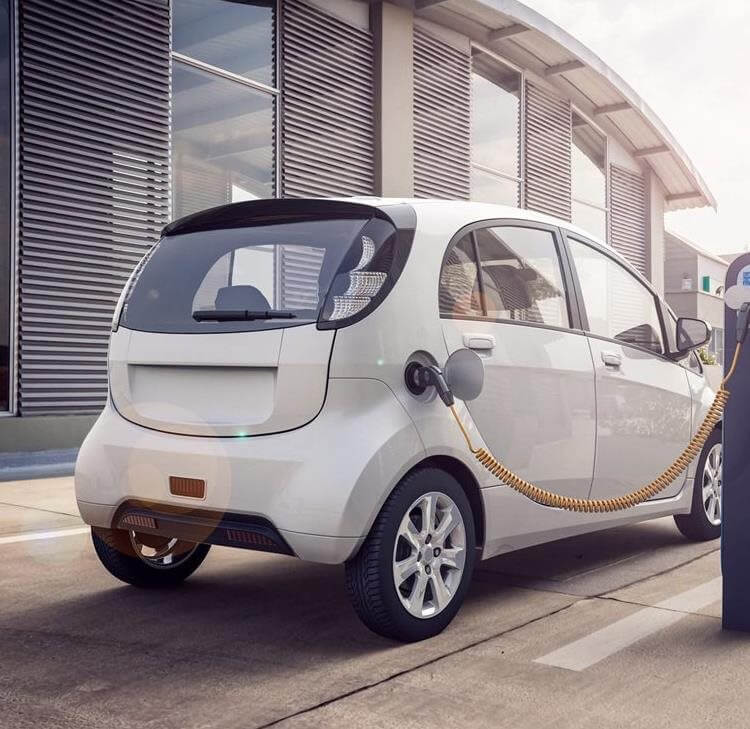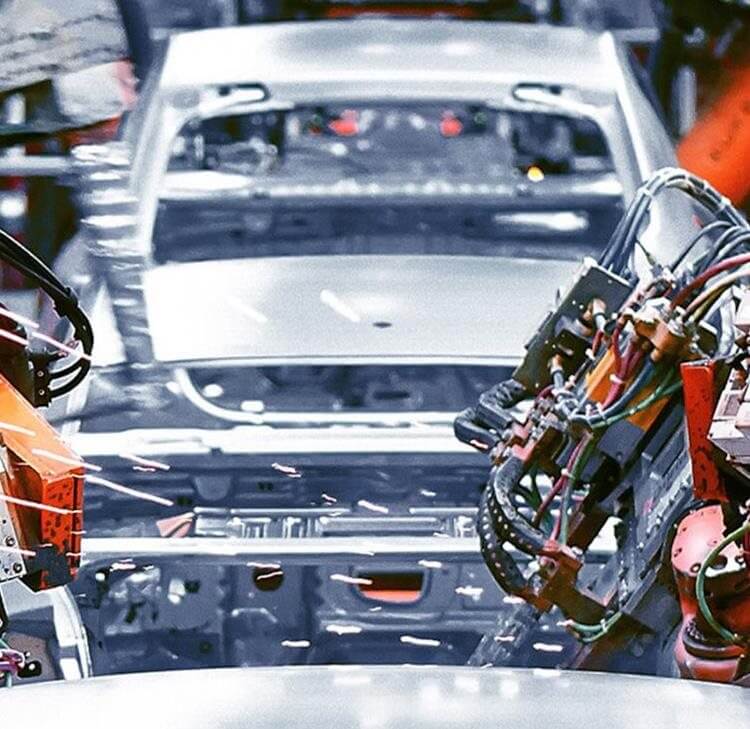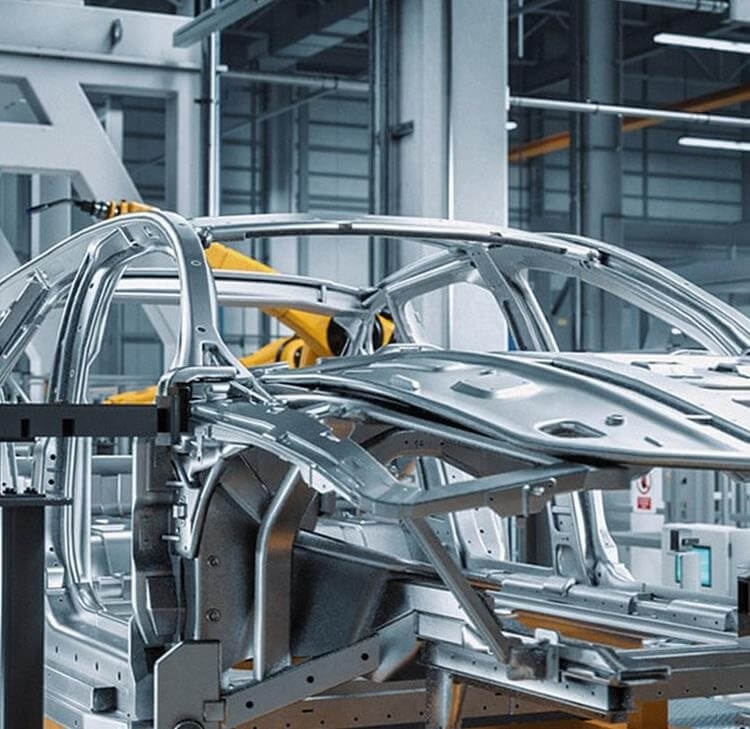As the United Kingdom strides towards its goal of achieving net-zero emissions by 2050, local authorities find themselves at the heart of a transformative journey, particularly in the realm of regeneration and transportation.
Charging infrastructure is a key pillar in the government’s strategy to move to zero-emission cars and vans and local government is ideally placed to deliver or facilitate this key infrastructure.
For local authorities, the push towards electric vehicles (EVs) and the necessary charging infrastructure is not just about adhering to national and international climate goals; it's about leading the charge in removing one of the most significant barriers to electric vehicle adoption—the availability of reliable charging points. This challenge presents both a responsibility and an opportunity. By enhancing the electric vehicle charging infrastructure, local authorities can significantly influence the public's perception and real-world feasibility of transitioning to electric vehicles, thereby accelerating the UK's journey towards a decarbonised transport sector. As such, we have highlighted key challenges and opportunities for local authorities when looking to deliver electric vehicle infrastructure.
Structure of EV infrastructure
When local authorities evaluate options to enhance their electric vehicle charging infrastructure, they must typically consider two structures for the arrangement: a directive approach or a concession agreement. The directive approach involves the local authority retaining ownership and operational control, with the operator responsible for building and maintaining the charging points. This model suits local authorities with specific requirements for their electric vehicle infrastructure, offering them operational freedom but also leaving them with the majority of the risk. Conversely, a concession agreement allows the local authority to grant operators the right to develop, construct and manage the electric vehicle charging network on its land in exchange for payment, usually in the form of a land use fee and/or a share of revenue. This approach shifts the operational risks and maintenance responsibilities to the operator, providing a way for local authorities to benefit from external expertise and reduce their risk exposure.
DNO connections
When local authorities plan to expand their electric vehicle charging infrastructure, the arrangements with Distribution Network Operators (DNOs) for electricity connections are key. Depending on the scale and nature of the infrastructure, additional substations or grid reinforcement may be required and either the local authority or the operator will need to manage the connection process. It is crucial to note that installing new charging points can be costly and time-consuming with, particularly in rural areas, grid capacity issues posing challenges. The cost and time to connect vary by location and may require significant grid upgrades to meet the increased demand.
Exclusivity
In planning electric vehicle infrastructure, exclusivity is also key. Operators may seek an exclusivity agreement with local authorities to prevent competition on or close to a site they have invested in – particularly where they have borne the DNO connection costs. Where exclusivity is appropriate (which will certainly not always be the case) this should be limited to the minimum necessary to protect the operator’s investment and local authorities should consider any circumstances in which the exclusivity will be removed, any controls on pricing and any political issues with resident/user choice being limited.
End of term and ownership
As the lease and/or agreement nears its end, careful consideration should be given to the future of the technology involved. Given the rapid pace of technological advancement, assessing the potential value and relevance of the charging infrastructure after the economic lifetime of the equipment is crucial. This evaluation should guide the decision-making process surrounding the disposition of the charging points at the agreement's conclusion. Local authorities need to deliberate on whether assuming ownership of the charging stations aligns with their long-term strategic goals or whether it would be preferable for the operator to dismantle and remove the equipment.
Legislation
Local authorities must also be mindful of legislation concerning electric vehicle charging infrastructure. A host of specific regulations apply to the design, installation and operation of electric vehicle charging infrastructure. These include:
- The Alternative Fuel Infrastructure Regulations 2017, establishing common standards for connectors and outlets, ensuring open access and intelligent metering and promoting transparency on charge point locations.
- The Electric Vehicle (Smart Charge Points) Regulations 2021, requiring smart functionality and cybersecurity standards.
- Public Charge Point Regulations 2023, imposing requirements for rapid charge points to be reliable ensuring pricing and data transparency and aiming to simplify payment.
- Local authorities undertaking wider projects will also need to be mindful of changes to Building Regulations which require the installation of electric vehicles charge points for certain new buildings and major renovations.
- Electricity licensing framework, the rules on supplying electricity to third parties either under a licence or an exemption will also apply.
Conclusion
Local authorities are at the forefront of driving the UK's ambitious shift towards net-zero emissions by 2050, with a particular focus on developing electric vehicle charging infrastructure. With their regional and local knowledge and functions, local authorities are perfectly placed to deliver the infrastructure required to transition to zero-emissions vehicles, whether as part of wider regeneration plans or otherwise. Making electric vehicle adoption more feasible and attractive will accelerate the UK's progress towards a decarbonised transport sector and a sustainable future.
Key contact

Alex Kynoch
Partner
alex.kynoch@brownejacobson.com
+44 (0)115 976 6511
You may be interested in...
Legal Update
US tariffs: Implications for the UK automotive sector and practical steps for businesses
Legal Update
Navigating the road ahead: Fate of the UK’s automotive EV market in 2025 and beyond
Legal Update
UK court clarifies copyright protection for "works of artistic craftsmanship"
Legal Update
The future of transportation: The UK's approach to automated vehicles
Press Release
Corporate sector: 2025 predictions
Legal Update
When roads diverge regulating autonomous vehicles: EU v UK approaches
Legal Update
Insurability by design: Increased transparency for vehicle manufacturers and insurers
Legal Update
Delivering EV charging infrastructure: The local government perspective
Guide
Guidance for manufacturers of EVs and HEVs in the UK: ASA's non-exhaustive electric vehicle advertising guidance
Legal Update
Changing lanes: Automated Vehicles Act 2024 becomes law
Legal Update
Update: Further debates on the Automated Vehicles Bill in the House of Lords this month
Legal Update
King’s Speech gives the green light for autonomous vehicles
Opinion
An Update on Autonomous Vehicles and the Transport Bill
Legal Update
The future of autonomous technology - August 2023
On-Demand
'Autonomous vehicles: what the future holds' on-demand
On-Demand
NSIA: the thorn in the side of M&A?
On-Demand
Automotive webinar - EV charging points: contractual and liability issues to be aware of
On-Demand
Automotive webinar - Grant Funding and Collaboration Agreements
In this session, we examined the legal framework around grant funded collaborations and discussed the key risks to be aware of, including IP ownership and compliance with grant terms.
On-Demand
Automotive webinar - Commercial Contracts
Published Article
The problematic transition to electric vehicles - what is the impact on manufacturing
It was reported in May 2022 that the BMW-owned manufacturer had been forced to put a temporary stop on the production of all manual transmission vehicles due to the global semi-conductor shortage and the war in Ukraine. Mini stated that the move was made in order to "ensure production stability".
Published Article
Rolls Royce SMR ambitions will bring Hinkley like benefits to regions
Rolls-Royce has shortlisted six locations for its first factory for small nuclear power stations. We look at the impact on regions & local businesses
Published Article
Hydrogen villages
First Hydrogen has identified 4 sites in the UK where it plans to locate large hydrogen refuelling stations for commercial vehicles. The sites will also accommodate on-site hydrogen production of between 20 and 40 MW (totalling 80 MW - 160 MW across all 4 locations) and will serve the urban areas of Greater Liverpool, Greater Manchester, London and the Thames Estuary. The plans form part of the Energy division’s strategy to develop green hydrogen production projects, initially in the UK and Canada.
Legal Update
The Omnibus Directive is almost here
Press Release - Firm news
Browne Jacobson’s two ‘rising stars’ announced winners at the WeAreTheCity Awards 2022
A lawyer and a HR business partner from law firm Browne Jacobson have been announced as winners of the WeAreTheCity’s Rising Stars Awards 2022.
Press Release
Browne Jacobson dealmakers advise shareholders on the sale of automotive glass distributor Charles Pugh to international sustainable car care group
Browne Jacobson’s corporate dealmakers have advised the shareholders on the sale of UK market leading automotive glass specialists, Charles Pugh Holdings to Swedish listed company, Cary Group for an undisclosed sum.
Press Release - Firm news
Law firm drives on with carbon neutrality commitments with launch of employee electrical vehicle scheme
National law firm Browne Jacobson has launched an electric vehicle (EV) scheme as part of its employee benefits package. The benefit will be available to all of the firm’s employees across its five offices, including Birmingham, Exeter, London, Manchester, and Nottingham.
Legal Update
Don’t let the lights go out – dealing with an insolvent energy supplier
There are a number of factors which have contributed to the crisis including the huge increase in wholesale natural gas prices, which have risen some 250% since the start of 2021. Since the start of last year, over 30 energy firms have gone bust in the UK alone.
Legal Update
Employment Tribunals 2022-23 – What to Expect
The Presidents of the Employment Tribunals England and Wales and Scotland have issued a new road map for 2022-23, providing an update on the resourcing challenges faced by employment tribunals and the steps put in place to address these.
Opinion
Automated Vehicles - the next junction in the legal landscape
As a developing area, key stakeholders in this space such as insurers, and technology and software developers looking to become ASDEs or NUIC operators, should keep a keen eye on whether the Government proceeds with introducing new legislation in line with the report’s recommendations.
Opinion
Revisions to the Highway Code and potential impact on civil liability
The Highway Code has had its first major revision since 2007. Amongst several changes, a new hierarchy has been created, with road users who are most likely to cause harm having the greatest responsibility to reduce the threat they may pose to other road users (rule 204 of the Code).
Legal Update
Market Update: Automotive
The automotive industry is currently a hotbed of innovation. This year’s CES offered a number of highlights in the automotive arena where the ongoing electrification of leading product lines continued: General Motors announced an electric version of its Chevy Silverado pick-up truck, BMW unveiled a concept car which is capable of changing colour between black and white by activating electronic ink in a wraparound shell.
Legal Update
New year, new Brexit transport rules
From 1st January, new import rules come into effect, with potential for significant delay, disruption and cost for importers and exporters.
Press Release
Browne Jacobson provides legal advice to Oxford City Council on largest UK public electric vehicle charging hub project
Browne Jacobson’s specialist government and infrastructure lawyers have provided legal advice to Oxford City Council on a high-profile infrastructure project which will support the City of Oxford in its sustainable goals strategy through the launch of an electrical vehicle (EV) charging hub.
Published Article
Future Opportunities with the Electric Vehicle Revolution
Our Automotive Sector group hosted a fantastic event – “Future Opportunities with the Electric Vehicle Revolution” - in conjunction with London Tech Week. The firm’s first hybrid event took place in the London office on 23 September 2021.
Legal Update
Will councils be forced to install EV charging?
The central government’s Net Zero commitments will require the use of high carbon combustive fossil fuels to decline in order to meet its targets. A ban on new combustion engine vehicles from 2030 (and 2035 for certain hybrid models) is due to be imposed in order to reduce emissions, assisting with its Net Zero goals.
Opinion
How might driverless cars impact real estate?
One year ago, the Department for Transport targeted 2021 for having connected and automated vehicles on UK roads.




















